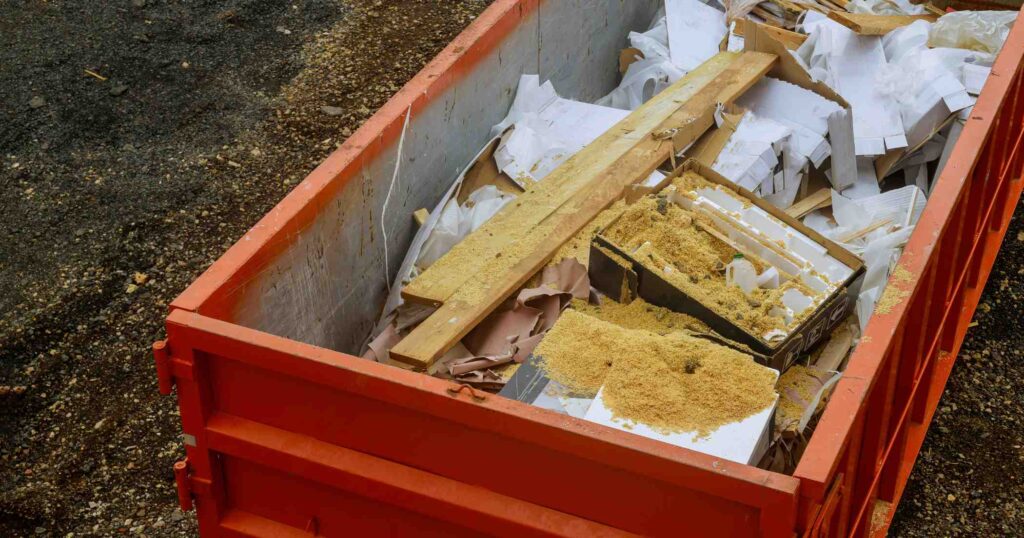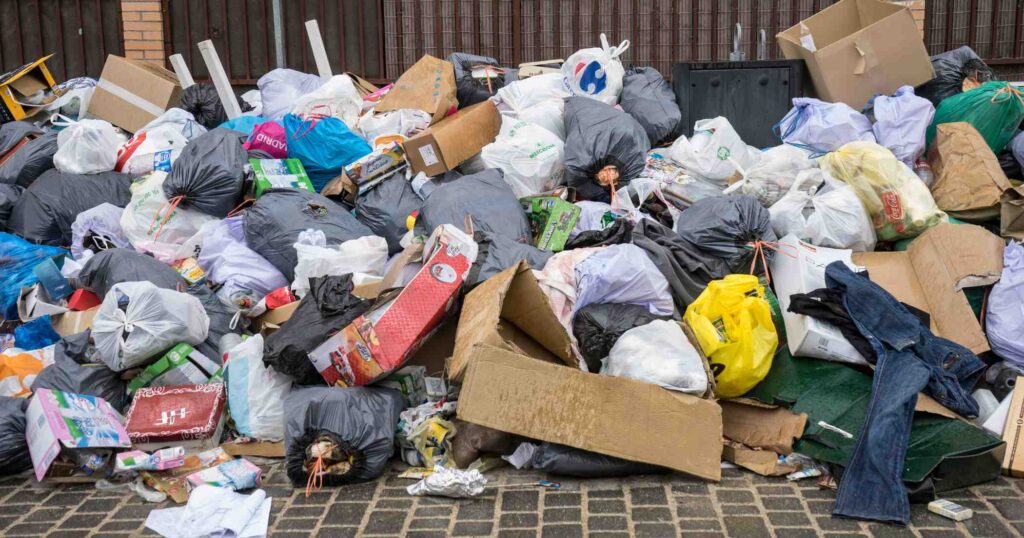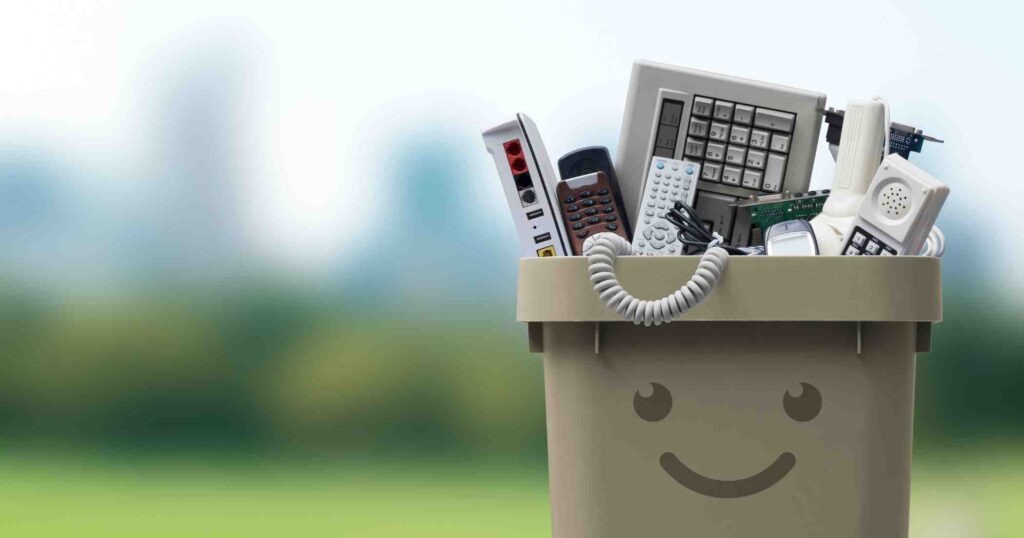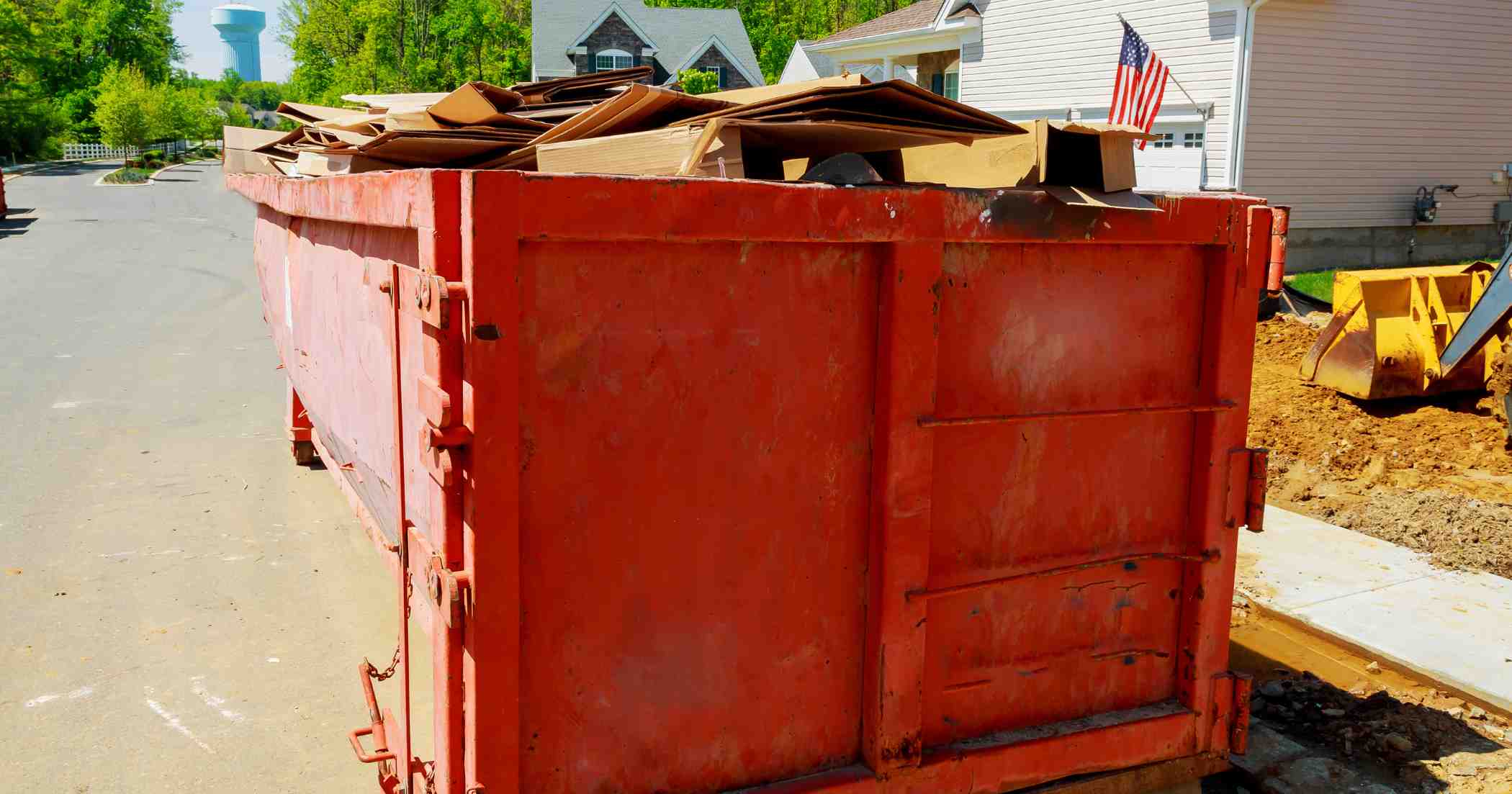Before you dive into renting a roll-off dumpster, Madtrashtx has got you covered with the essential waste management rules you need to know. These guidelines outline which materials are safe to toss and which ones need special handling.
While many items can be disposed of with ease, certain materials require extra care and shouldn’t be mixed with the rest. Understanding these rules ensures you’ll be disposing of your waste correctly.
Ready to rent a roll-off dumpster for your home or business? Here’s a quick rundown of the must-follow waste management rules to keep you on track!
Why People Choose Roll-Off Dumpsters?
Roll-off dumpsters are a go-to solution for many homeowners and businesses alike, and it’s easy to see why. Imagine you’re a homeowner diving into a renovation or a big home improvement project—chances are, you’ll end up with a mountain of materials that need to be tossed. That’s where a roll-off dumpster comes in handy. If you’re unsure about which dumpster size to choose for your project, our Dumpster Size Guide can help you.
For construction companies, these dumpsters are indispensable, often filling up daily with drywall scraps, shingles, boards, nails, and more.
But here’s the catch: not everything can be thrown in together. Certain materials like specific plastics, metals, and oils require separate handling to ensure proper disposal.
Understanding the waste management rules is key. Once you know what’s allowed, you can confidently toss the right materials into your dumpster.
Make sure to review what size dumpster you need for your home renovation project to avoid overfilling.
Waste Management Rules for Roll-Off Dumpster Use
Let’s start with the basics: what can you actually throw into a dumpster? The good news is the rules are pretty straightforward. Most types of standard debris, junk, and nonhazardous waste are fair game.
Think mattresses, tables, dried paint cans, water-damaged materials, rebar, dirt, and even clothing. You can also get rid of old toys, boxes, fire-damaged items, sinks, and roof shingles.
For construction sites, dumpsters typically see a mix of lumber, roofing materials, and demolition debris. Flooring materials, building siding, and much more are also welcome, making roll-off dumpsters a versatile and essential tool for any big project.

Different Types of Debris You Should Keep Separate
When tackling residential projects that involve clearing out standard junk and debris, you can typically toss everything in together. This might include non-organic trash, cardboard, old documents, carpet, and even organic materials like mulch, sod, and grass.
However, if you’re working on a construction project, it’s important to keep certain materials separate, such as metal, concrete, and roofing shingles, whenever possible.
This helps the waste management company dispose of these materials properly by directing them to the appropriate facilities.
For more guidance, check out dumpster rental tips to ensure efficient waste management.
Materials You Shouldn’t Put in a Dumpster
It’s common to have leftover liquid materials from home projects, such as wood stains, lacquer, paint thinner, or other paints, with the exception of latex-based products.
These materials should not be tossed into a dumpster. Instead, they need to be taken to a municipal solid waste facility where they can be safely stored and disposed of.
Why are these waste management rules in place? Certain materials are prohibited in landfills because they can contaminate groundwater through percolation. Learn more about prohibited items in our Waste Management Rules section.
Rubber tires are another item that cannot simply be thrown into a dumpster. While billions of tires are produced, they must be disposed of properly.
In some cases, they can be placed in designated areas, but increasingly, companies are using pyrolysis machines to break them down into burnable fuels.

Items You Can’t Toss in a Dumpster
When using a roll-off dumpster, it’s essential to know which items are off-limits due to their hazardous nature. While some of these restrictions are well-known, it’s crucial to review them to avoid any mishaps. Items that fall into the hazardous category include:
Household Cleaners: Many cleaning products contain chemicals that can be harmful to the environment and human health.
Propane Tanks: These are pressurized and can be dangerous if not disposed of properly.
Automotive Fluids: Engine oil, antifreeze, and other car fluids contain toxic substances that require specialized disposal.
Resins: Used in various DIY and industrial applications, these substances can be hazardous if not managed correctly.
Medical Waste: Items like used needles, medications, and other medical materials must be handled with care to prevent contamination.
If you need to dispose of soil contaminated with pesticides or herbicides, it’s important to keep it out of the dumpster. These substances can leach into the ground and affect water sources.
Batteries: All types of batteries, particularly car batteries, should be kept out of dumpsters. They have chemicals that might seep into the soil. Instead, take them to a designated recycling center or waste management facility that has specific bins for batteries, including car and lithium types. These facilities handle the batteries safely, preventing environmental contamination.
Final Waste Management Tips for Roll-Off Dumpsters
When managing your waste, there are a few additional considerations to ensure you’re following best practices:
Electronics: Devices like cell phones, computers, printers, stereo systems, and televisions contain various components that can be hazardous. For instance, cell phones often contain lithium batteries that should not be disposed of in regular trash. If possible, remove the battery from the device before disposal. Dispose of both the battery and the device separately at a specialized electronic waste facility. These facilities dismantle the electronics, recover valuable materials, and process the remaining components in an environmentally responsible manner.
Waste Disposal: Properly disposing of electronic waste (e-waste) is crucial. If you’re uncertain, check the guidelines to see if electronics can be placed in rental dumpsters. Many electronic devices contain materials that can be recycled or require careful handling to prevent environmental damage. Specialized facilities are designed to manage e-waste, ensuring that parts are either reused, recycled, or disposed of safely.
When you follow these waste management guidelines, you’re doing your bit to dispose of waste responsibly. Just keep in mind that things that can’t break down naturally or might pollute groundwater shouldn’t end up in a dumpster. Sticking to these simple rules helps you keep your space—whether at home or at work—clean, safe, and kind to the environment.

Frequently Asked Question
What items can I put in a roll-off dumpster?
You can generally dispose of a wide range of standard debris and non-hazardous materials in a roll-off dumpster. This includes household junk like old furniture, broken appliances, and damaged clothing, as well as construction waste such as drywall, wood, and roofing shingles. Yard waste like grass clippings, branches, and leaves are also permitted. Items like mattresses, tables, fire-damaged materials, and water-damaged goods are typically acceptable as well. However, make sure to check with your local waste management provider for any specific restrictions.
Are there items I should keep separate in the dumpster?
Yes, certain materials should be kept separate to facilitate proper disposal. For instance, metals, concrete, and roofing shingles are best kept apart from other waste. This separation helps waste management companies sort and process these materials more efficiently. Additionally, if you’re dealing with a large amount of construction debris, it’s helpful to separate recyclable materials like metal and wood from non-recyclables.
What types of materials are prohibited from dumpsters?
Several types of hazardous materials are prohibited from roll-off dumpsters. These include:
Household Cleaners: Many contain chemicals that can be harmful to the environment.
Propane Tanks: Pressurized tanks pose a risk of explosion if not handled correctly.
Automotive Fluids: Items like motor oil, antifreeze, and brake fluid contain toxic substances.
Resins: Used in various DIY projects, these can be hazardous.
Why can’t I throw batteries in the dumpster?
Batteries contain chemicals and heavy metals that can leak into the ground and potentially contaminate groundwater. This is particularly true for car batteries and lithium-ion batteries, which have a higher risk of leaking hazardous substances. Proper disposal requires taking them to a recycling facility or a designated drop-off location where they can be processed safely.
What should I do with electronic waste?
Electronic waste, or e-waste, includes items such as cell phones, computers, printers, and televisions. These devices contain components that can be harmful if not handled properly. They should be taken to an e-waste recycling facility where they can be dismantled and processed for recovery of valuable materials. Many communities have dedicated e-waste recycling programs or drop-off centers.
What happens if I put prohibited items in the dumpster?
Placing prohibited items in a dumpster can lead to several issues. Environmentally, it can result in contamination of land and water. Legally, improper disposal may lead to fines or penalties. Waste management companies may refuse to collect the dumpster or charge additional fees for handling and removing these items. To avoid complications, ensure that all materials in the dumpster comply with local regulations.
Conclusion
Understanding and following waste management dumpster rules is crucial for effective and responsible disposal of your materials. By knowing what can and cannot be placed in a roll-off dumpster, you ensure that your waste is managed properly and in accordance with environmental regulations.
Proper segregation of materials, such as keeping hazardous items and e-waste separate, helps prevent environmental contamination and avoids potential fines.
Adhering to these guidelines will not only make your clean-up process smoother but also contribute to a healthier and more sustainable environment.
Whether you’re tackling a home renovation or managing a construction site, following these rules will help you dispose of your waste responsibly and efficiently.
